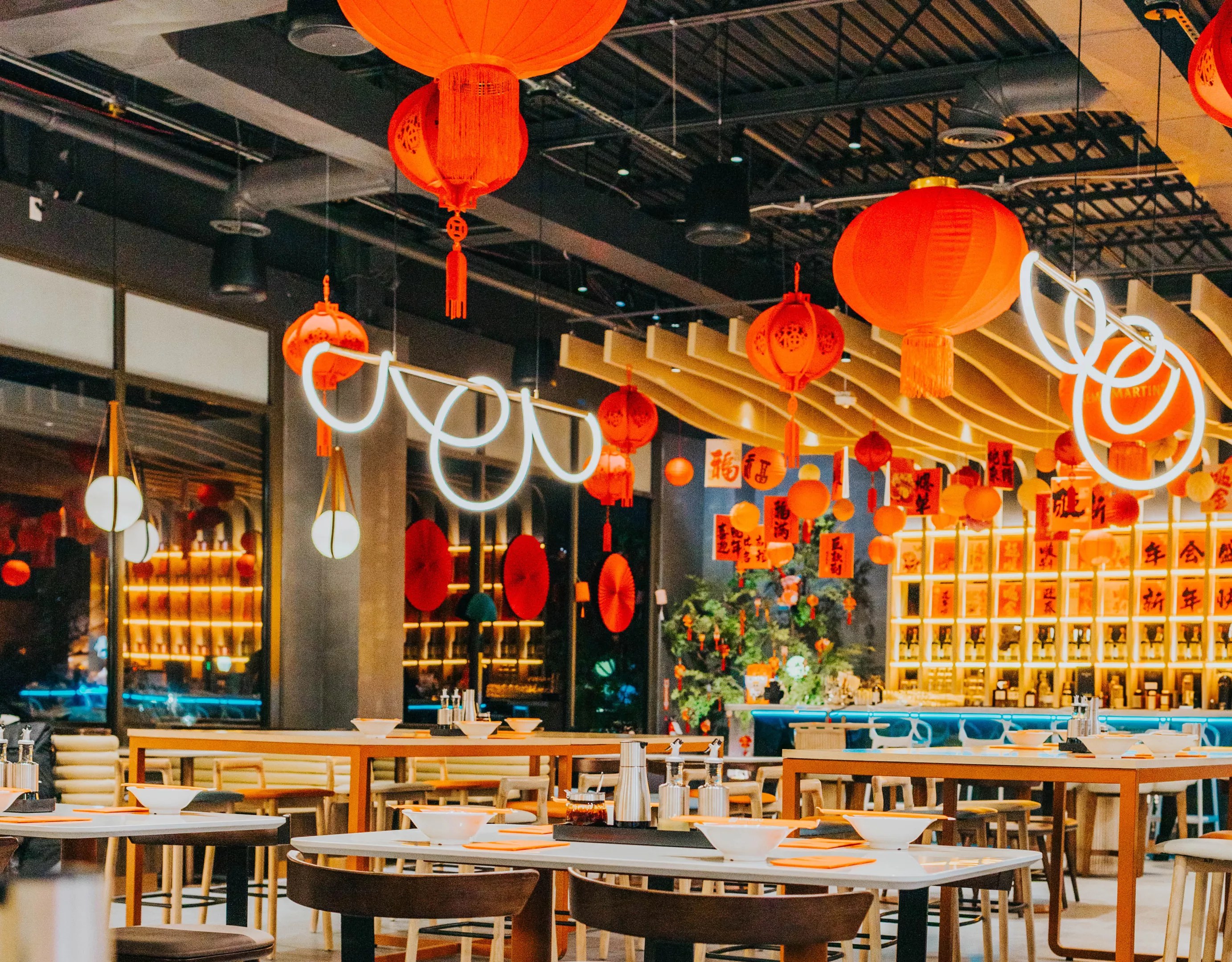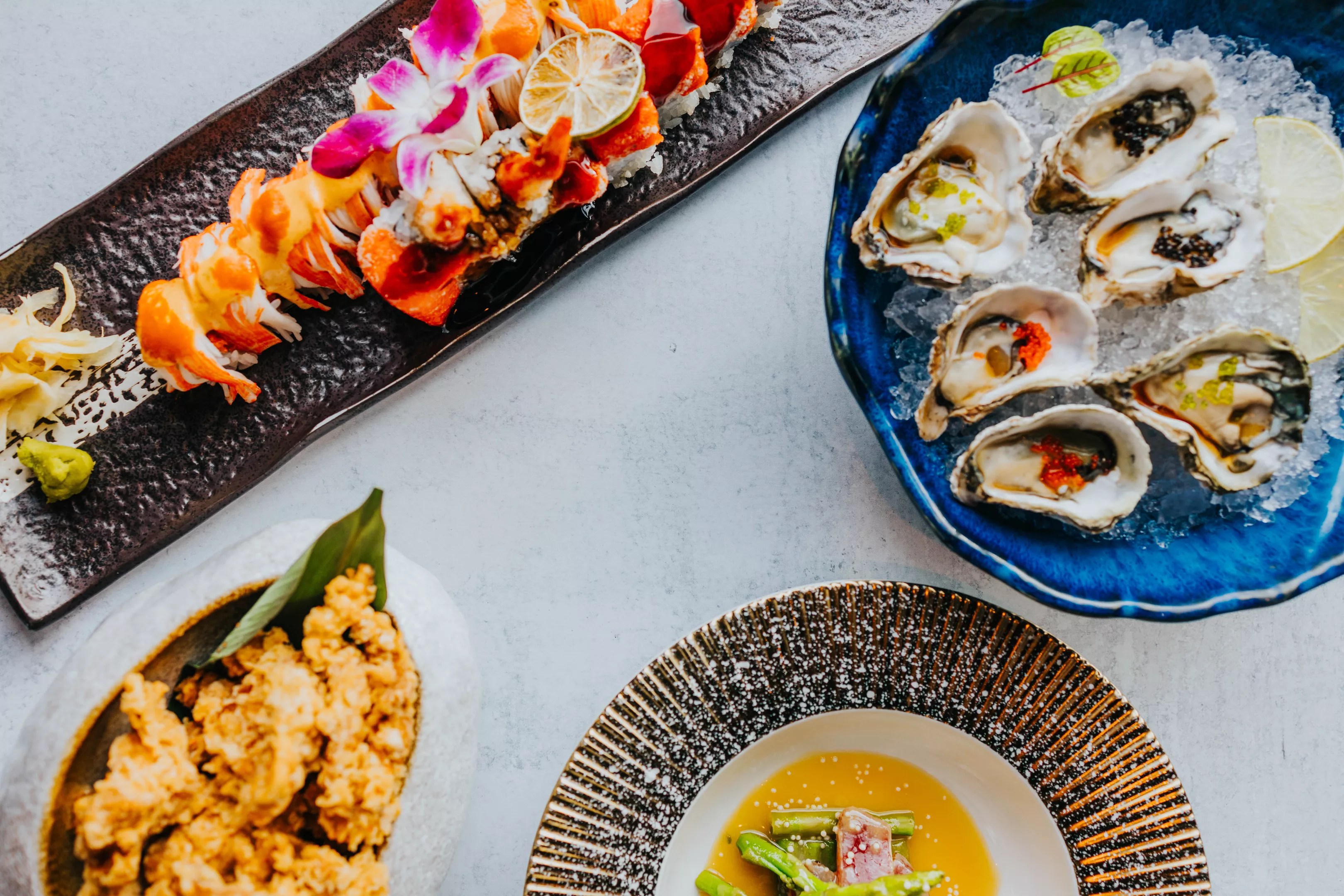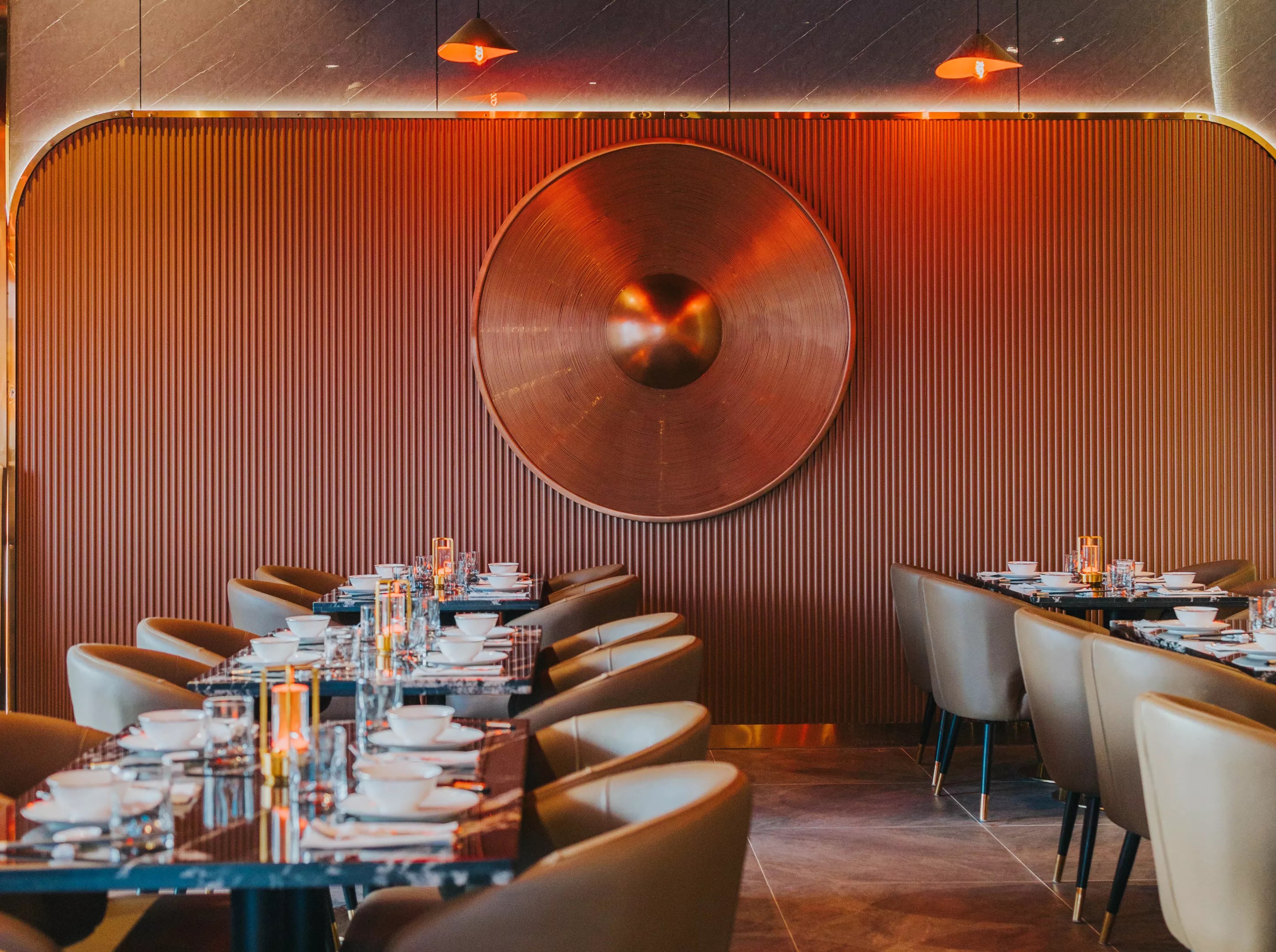
One Concept Restaurant Group

Audio By Carbonatix
Ironically, One Concept Restaurant Group includes many concepts. This under-the-radar company’s portfolio ranges from stalwarts like Go Fish Sushi to buzzy newcomers such as Miya Moon in Lone Tree and Mikaku Ramen & Temaki in Aurora. As restaurant closures continue to stack up amid a wide range of industry challenges, OCRG is an exceptional success. It currently operates twelve locations across its brands and has plans to open two more new concepts this year, with no signs of slowing down.
It started with the casual sushi restaurant Go Fish Sushi, which Qun “Ben” Zheng, a Chinese immigrant and sushi chef, opened at 1 Broadway in 2007 with Shuang “Sherry” Crossland, who is now the face of OCRG.
For seven years, Zheng and Crossland focused on the one restaurant, slowly building their experience, reputation, cash reserves and connections. In 2014, they expanded the original location to include a lounge and opened up a second Go Fish Sushi in Broomfield.
Three years later, Tian Xia, the former owner of hot pot restaurant the Bronze Empire at 1591 South Colorado Boulevard, reached out to Crossland about a potential partnership that has proven to be successful; its on our current list of the Top 100 Restaurants in the metro area.

Dishes from Go Fish Sushi, which now has locations in Denver and Broomfield.
One Concept Restaurant Group
However, Crossland always had her eyes on opening a boba tea shop. “It was kind of my dream,” she recalls. “We didn’t have any good boba in Colorado back then; it’s not like now, where there’s like a hundred.” In fact, there were only two other shops when they opened up a Kung Fu Tea franchise in 2017. The first day, it sold out – 1,400 drinks, with lines out the door.
OCRG also started Poke Concept, one of the first fast-casual poke bowl restaurants in Denver. Over the next two years, it expanded to four locations and the team was considering expanding out of state. But by 2019, the market had become oversaturated with dozens of similar concepts, so OCRG instead killed off that concept and went back to its tried-and-true business model.
That year, it purchased Sushi Umi in Thornton; debuted a second Kung Fu Tea in 2021; acquired Honey Basil Cafe from Zheng’s uncle in 2022; converted Sushi Umi into Chubby Fish Sushi in 2024 and transformed an old Poke Concept building in Greenwood Village into Honey Basil Express that same year. Now, in the last two months, it’s added Miya Moon and Mikaku.
When speaking with restaurant owners, it often seems more like a conversation about art, craft, passion and love than business. But for OCRG, each new brand is an iteration of its business hypothesis: Be first, fill the gap. In the beginning, the company benefited from the luck of being first to market with each concept. But today, it’s laser-focused on its business model and operational execution.

Miya Moon in Lone Tree is an upscale Asian tapas restaurant.
One Concept Restaurant Group
Once the price point and cuisine are determined, a lot of things fall into place. For Miya Moon, the team decided on an upscale Chinese tapas restaurant with Las Vegas-inspired decor and recognizable Chinese and Chinese-American dishes that would satisfy the Lone Tree clientele’s expectations.
With Mikaku, though, the focus was on hewing to traditional recipes in a bid to become Denver’s favorite ramen shop. “Our chefs went to Japan to learn how to make ramen. … We are using machinery to make the noodles to make a bigger amount, but the recipes and ingredients are all traditional,” explains Choi.
Chimes in Crossland: “Ramen is the biggest thing right now, but not too many spots in Denver…so there’s a good opportunity.”
OCRG has cracked the code that many Denver restaurateurs struggle with: delivering the value customers truly want by being food-driven. “If you walk into a restaurant and you have a bad experience with a server, a month or two later it’s going to be a different server,” explains Choi. “But if your food is bad the first time you go, you’re not going to go back no matter how good the service is.”
That’s why the group uses the same high-quality seafood for both Go Fish Sushi and the all-you-can-eat menu at Chubby Fish. “Because to us, it’s not worth getting those complaints and the reputation of, ‘Oh, they use cheap ingredients,'” Choi notes. “It’s not just about the food but making a place where people want to be, where they want to come have fun, whether it’s for drinks or date night. But at the end of the day, it’s a food establishment. People are there for the food and they need to feel like they got their money’s worth.”
Then there’s the fact that in the hospitality industry, experience pays off. “Opening a restaurant can be hard. But not for us, because we’ve got almost twenty years of restaurant background,” says Miller. “We still get frustrated sometimes, especially because we can’t control the government. But we know how to construct, we know how to hire and train good people, we know how to do inventory, we know all the basics.”
Currently, nearly ten people work at OCRG’s corporate headquarters in positions that oversee planning, accounting and marketing – the team even includes a full-time photographer.

Shuang “Sherry” Crossland will open her first SYC Concepts restaurants this year.
One Concept Restaurant Group
Even as the upscale dining scene gets more crowded, OCRG is once again finding the gap, this time in high-end dining with SYC Concept, which was inspired by Crossland’s travels and dining experiences.
The first of the new concepts, SYC Temaki, is set to open in April in the same plaza as the Bronze Empire. There will be no tables; all customers will sit at the sushi bar as the chef prepares hand rolls. Next up is one of the most anticipated openings of the year, SYC Blossom, which will fill the former El Chingon space in LoHi. The high-end Chinese fusion concept will be more chef-driven than the team’s other restaurants; the team admits that the goal is to earn a Michelin Star.
Also on deck is SYC Omakase, which will double as an events space, in Cherry Creek North and Sushi By SYC in Broomfield.
SYC Concepts is clearly a passion project for Crossland. She has custom nails with SYC appliques, a branded SYC jeweled pin on her suit lapel, and an SYC phone case and key chain; the logo is also on her phone lock screen.
“All my time is on SYC,” she says with a nervous laugh. Is she scared? “Yes.” Were you scared when you opened up Miya Moon? “No.” What about Mikaku? “No, not at all.”
It’s impressive – twenty years in the business and if the team did nothing more, the company would be sitting pretty. But with SYC, OCRG is showing that scrappy entrepreneurial spirit: If you don’t adapt, your competition will eat you.
“It’s the next chapter for our company,” says Choi. “We want to be known not just for sushi and Chinese restaurants throughout Colorado, but also elevated restaurants in Colorado.”
For more information about One Concept Restaurant Group, visit oneconceptrg.com. To learn more about SYC Concepts, follow @sycconcepts on Instagram.